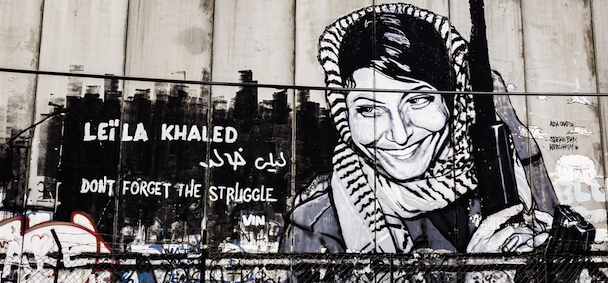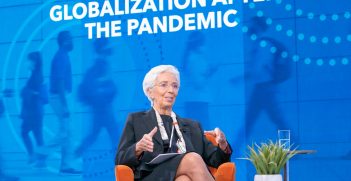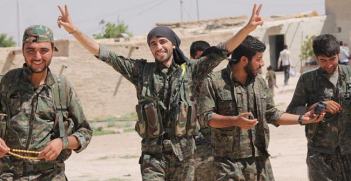The Role of Islam in World Affairs: Engaging with the "Other"

Despite the fact that most Muslims – accounting for 1.6 billion or 22 per cent of the world’s total population – do not support militant organisations, Islam’s role in the contemporary world is generally perceived as a threat to global stability.
The actions of minority Muslim groups such as Al Qaeda, ISIS and regional militant organisations including Hamas, Boko Haram, Tehrek-e-Taliban Pakistan and Taliban lend credence to this perception. Despite their small support base, these militant organisations create structures and narratives that present their view of an “idealised ummah” of the Muslims in a confrontational relationship vis-à-vis the rest, especially the West. As has become apparent over the last few decades with reference to Al Qaeda’s growth and more recently since 2014 with respect to ISIS, these entities do succeed in enticing a sufficient number of Muslim youth to give the impression that militancy is an accepted norm among Muslims.
Often the uncritical acceptance of this perception as the reality of Islam and Muslims fails to appreciate the complexity underpinning the dynamics that lead to a minority of Muslims. The small number that is adopting such militant and hence destabilising attitudes towards whoever is identified as the other, be they the Western liberal states, Israel, India or even rulers of Muslim majority states. It also denies us the capacity to appreciate that in the process, the majority of the Muslims living in Muslim majority states or as minorities in non-Muslim societies suffer the consequences of the actions of the few in their respective spaces. The mistakes of a few cause problems for the majority and contribute to lack of understanding and harmony, or at least the hope for such harmony at the national and global levels.
Global developments since 9/11 provide an insight into how these mistakes shape our worlds. The terrorist attacks on the United States in 2001 created the narrative of Islam as the threat to global stability and prompted the US to retaliate against the Taliban in Afghanistan and punish them for housing Osama bin Laden and other members of Al Qaeda. But soon, the neo-conservatives shifted their attention to Iraq for an invasion in March 2003. The narrative of establishing sustainable democratic institutions in a country that had experienced Saddam Hussein’s authoritarian rule for a number of years was legitimised in terms of the rights of Shi’ite majority to rule and in contrast to the rule of the Sunni minority as embodied in Saddam’s person and the Baathist party. Such a narrative unwittingly heightened sectarian divisions in a country that did have a history of relative peaceful coexistence between Shi’ites and Sunnis. Suburbs where members of both the sects lived and also intermarried were suddenly transformed into zones of mistrust forcing people to find safe havens in other suburbs considered to be either majority Shiite or Sunni areas and hence relatively safe. Beyond these human experiences, the invasion also contributed to the ultimate rise of ISIS that now poses a threat to global stability by attracting youth, and sometimes the not so young, across the world to join its self-proclaimed Caliphate in Iraq and Syria.
To say this is not to absolve Muslim majority states of any role in the rise of sectarianism and ISIS as an entity that builds its narrative on hatred of the west and shi’ites. Saudi Arabia and Iran have engaged in promoting their particular brands of Islam across Muslim majority states. Funding of madaris (religious schools) has contributed to some Muslims justifying sectarian divisions. The support extended by Saudi Arabia and Qatar to Sunni groups in Syria also has been factor in the process. But the US invasion of Iraq in 2003 and the heightened focus on sectarianism has definitely facilitated the process by creating an environment in which these ideas were deemed to enjoy some religious/theological justification. It has affected hundreds of thousands of people around the Middle East region with refugees from Iraq and Syria streaming into Europe in search for safety. But they are not welcomed.
Occurring against the backdrop of terrorist attacks in Paris and Belgium, the image of ISIS as the threat, the fear of Muslim youth becoming a part of the home-grown and imported terrorists and the rise of right-wing extremism has created a narrative that presents the refugees as a potential and imminent threat. Once again the actions of a minority are impacting on the lives and security of those who are victims of the instability in Syria and Iraq. Sadly, the fear is undermining the European commitment to human rights and the values that had distinguished it from other societies that have failed to uphold such values.
These developments are also contributing to a growing sense of exclusion among Muslim minorities living in liberal Western states. The sense of being “othered” creates the environment in which Muslims feel that they are experiencing their citizenship as second-class citizens, or at best are being tolerated. In addition to providing the justification for some to respond to the call of ISIS, these feelings of relative exclusion also undermine societal cohesion.
The impact of Islam’s perceived threat to global and local stability, however, exceeds beyond just Muslim communities. The perception among non-Muslims of a threat, even if unreal or exaggerated, carries the possibility of promoting negativity and fear among those who perceive themselves to be the potential targets and victims of terrorist attacks. In a world connected through a myriad of networks that transcend national boundaries, the fear gets shared and multiplied, affecting people who are not even residing in the areas of conflict. This carries the long-term possibility of lessened trust and capacity of those charged with the task of promoting peace and stability.
So how do we deal with the complex situation that can no longer be understood and explained with reference to a state-centric paradigm? I would argue that during this time when Islam is being identified as the threat, it is the responsibility of both states and non-state groups to engage the “other” with a view to developing better understanding of the differences and similarities. The responsibility must be shared by governments of both Muslim and non-Muslim states to promote narratives of respecting diversity (religious, ethnic and racial, to name a few) locally and globally. This, in turn, requires greater attention to educating our younger generations about diversity and how it enriches human society. The process would be slow but without such efforts, we are likely to see continued process of the actions of minority impacting on the security and wellbeing of the majority. But governments also need to share the responsibility of developing national and global narratives that acknowledge that the sins of a minority of Muslims must not disempower the majority of Muslims around the world.
Professor Samina Yasmeen is the Vice President of AIIA WA and also lectures in Politics and International Relations at the University of Western Australia. This article is adapted from a presentation she gave at the recent AIIA WA event, entitled “The Role of Islam in World Affairs”.





